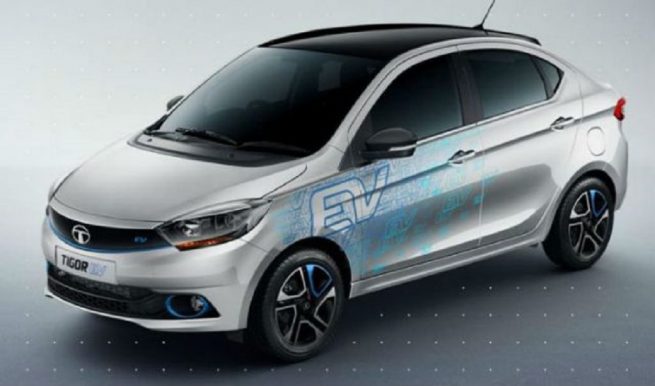Both the companies are going back on their contracts of providing higher specced cars to the officials.
The Indian Government is doing whatever is possible to ensure that the start of the next decade sees the onset of electric cars on the roads. With regard to this, they had put out a tender for an order of 10,000 electric vehicles for testing, using and replacing the petrol and diesel cars used by the Government officials. Initially, Tata won the contract by offering a car that surpassed the tender specifications at the lowest price of Rs. 11.2 lakhs. Mahindra too offered to provide its electric car at the same price which meant both the companies would be supplying 5000 cars each to the Government.
Now, Tata has already delivered 250 of the above mentioned 5000 cars but they have failed to meet the tender requirements. The contract had been signed with the condition that the cars will give a mileage of about 130 kms on a single charge. Not only do the delivered cars not meet this number, they also feel under-powered as said by the officials. Currently, the cars are able to run about 70-80 kms on a single charge which is nearly 40 percent less than what Tata had offered to provide.
This has irked the Energy Efficiency Services Ltd (EESL) officials who are responsible for the procurement of the cars for government departments. The agency has consulted the Law Ministry and a show-cause notice will be sent to Tata Motors on why the Government should not scrap the order as the cars don’t meet the specifications. Mahindra too are trying to forsake their word and are looking to negotiate the battery specifications and charging of their cars. This will basically mean downgrading its electric vehicles.
The tender was assigned to Mahindra and Tata as they were charging 25 percent less than their nearest competitor. Also, they were offering a five-year warranty compared to the competition’s three. The proposition sure seemed enticing at the time but hasn’t really made the officials happy as the cars are unable to meet the requirements.
Electric vehicles that have a long range aren’t cheap to produce. The reason for this is that the lithium-ion battery pack that powers the motor is costly. Unlike regular cars, the charging time too is much higher. While it may take a maximum of a couple of minutes to refuel your petrol or diesel engine, the battery pack takes hours to charge. This is one of the primary factors that has so far prevented electric vehicles from plying on the Indian roads.
India also faces a lack of infrastructure needed to charge the electric vehicles. While you will find enough fuel pumps, there’s absolutely no sign of charging stations in cities or highways. This limits your ability to go for long distances. At the price that Mahindra and Tata offered their cars, it just wasn’t possible to achieve a good range. A higher mileage means more batteries which translates into higher costs which the Government just isn’t ready to pay.
Tata is yet to comment on the issue but this is surely a huge road block in Government’s ambition to have an electric vehicle fleet. It also raises doubts about the quality of the electric vehicles being produced by Tata and Mahindra. If they can go back on their word while on a contract with the Government, who are we.
Tata Mahindra Electric Car
– Mahindra and Tata want to negotiate the terms of the agreement
– Clearly, the companies are looking to save costs in making their electric cars better
– EESL will be sending a show-cause notice to Tata Motors in this regard
Source – ETAuto.com
Update – Tata Motors has clarified that the company has not requested for any changes in the tender specifications. Tata has said that the company fully appreciates EESL’s efforts to come up with an optimised tender specification, which balances the range and price accessibility. They have also mentioned that the Tigor EV has been custom-designed to meet these specifications. The tender required the car to have 130 kms range under standard conditions, whereas the Tigor EV delivers a certified range of over 140 kms under standard conditions. The issue of low range has already been clarified by EESL.

